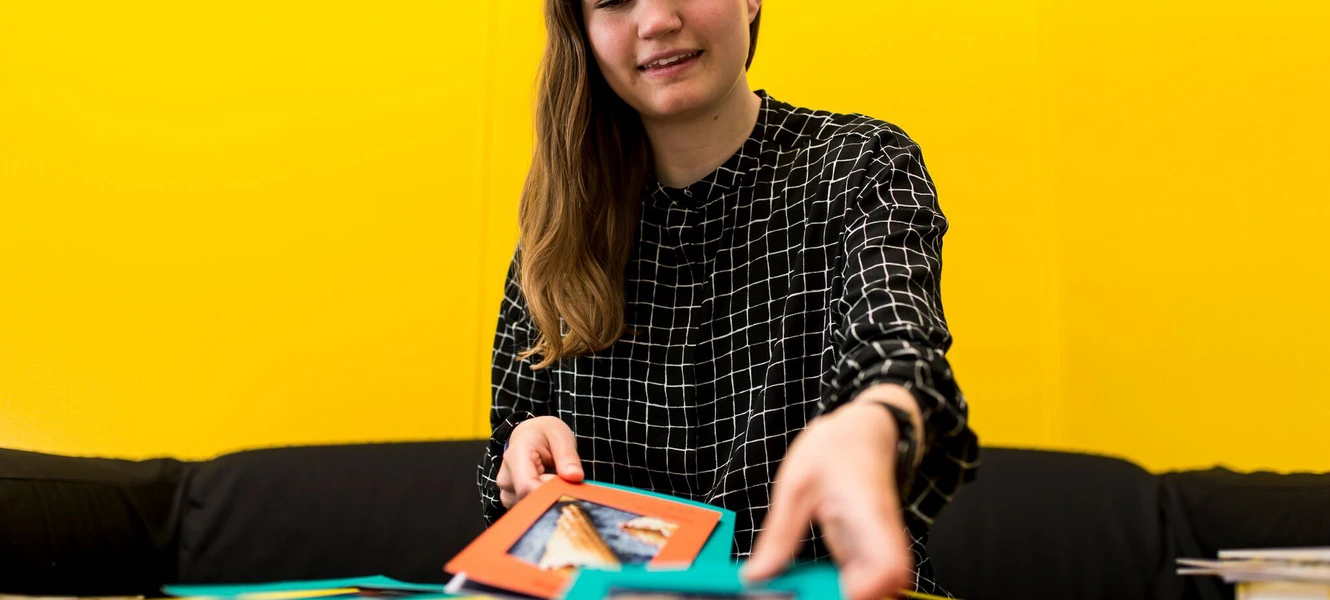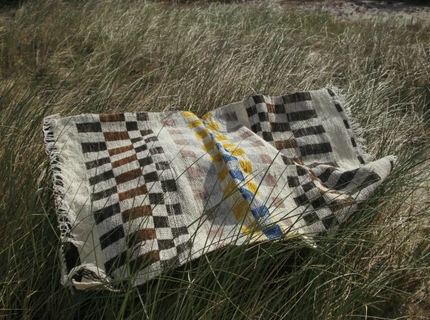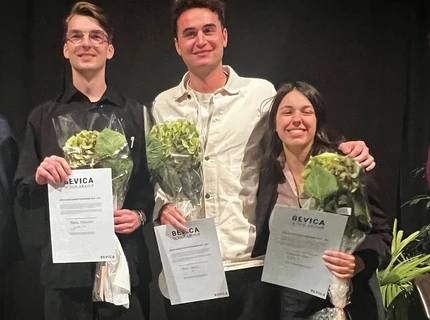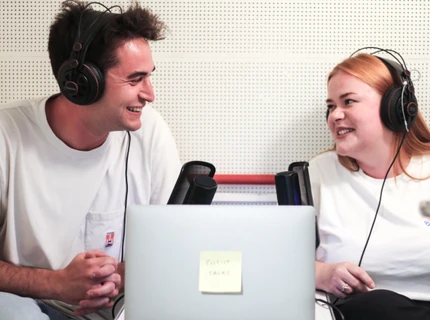
Dementia patients rediscover lost time
“We have to discover what activities are most meaningful for the individual. Therefore we always take our point of departure in the needs of the patients when they come to us. But identifying these needs is often a challenge. Caroline’s project is so important exactly because it answers the question, “What is interesting for me?” It is a great help for us.”
Annette Lindholm Aagaard is a Social and Health Assistant at the adult day centre Landlyst in Esbjerg Municipality. Communication designer Caroline Tranbjerg has been a regular visitor there for several months in preparation for her graduation project. Seven in-depth visits altogether, both in the daily routine of the centre and in the small allotment garden, Orkidehuset, which the centre co-owns with Esbjerg Municipality.
Gold-rimmed cups
”The first thing a person with dementia loses is the sense of time. I wanted to give the staff some tools they could use to recreate lost time and hence fulfil the needs of the patients,” says Caroline Tranbjerg, describing her project.
Therefore she was only there as a spectator first time around. She saw what happened in the allotment garden, where some patients talked about drinking beer, others about making jams; where the coffee service was gold rimmed rather than the institutional sterile white porcelain used at the adult day centre. They could also suddenly see things sprouting that they had planted during a previous visit. That specific dimension fuelled the final project that was given the name ‘Resonance’.
Words re-emerge
Resonance is first and foremost a tool to provide the patients, the staff and the relatives with some common references to start a conversation. What would you like to do, with whom would you like to do it and when would you like to do it? – basic everyday activities that may be difficult to remember, however, when your memory stalls. The patients were given 15 cards, three categories with five cards in each, not written or spoken, but with old pictures set in special frames which give the cards special meaning for the individual.
And they work, says Helle Holm Nielsen, another Social and Health Assistant at the adult day centre:
“We spent a very pleasant morning where we tested the cards on five patients. It was wonderful to see how the use of images brought back the words. One wanted to go for a walk in the woods; another patient wanted to go shopping, and a third one wanted to go swimming. Then we could ask them who they wanted to do it with, and suddenly more words emerged. We wrote everything down so that we can go back to their stories next time and they can have their wishes fulfilled. Many people suffering from dementia cannot remember what they did on a specific day or what they had for dinner, but activities generate good memories.”
The joy of the moment
The objective of the project is precisely these good intentions that emanate from positive designs focussing on getting the individual to flourish.
“The code word for my work has been normality,” communication designer Caroline Tranbjerg declares:
“I then divided that term into authenticity, identity creation and freedom, words that came to me when I visited the allotment garden and observed to fine dialogue that could be established with the patients as long as the right stimuli were presented. This joy of the moment is what I have tried to convey in project Resonance.” Card exchange The staff at the adult day centre Landlyst agrees that this project is on to something:
“The patients enjoyed Caroline’s visits very much and told us she was really part of the family. We have also noticed that some of them have started exchanging their activity cards thus widening their horizon,” says Helle Holm Nielsen.
If it were up to her the cards would be standard fixtures going forward.
“It is definitely a useful tool. So just get started!’ she concludes.
A brief summary of Resonance:
- The project consists of a number of physical cards developed for the adult day centre Landlyst in Esbjerg Municipality that caters to daytime patients with moderate dementia.
- The patients select three cards: what activity they want, with whom they want to do the activity, and where the activity is going to take place. Together the cards make up a sentence in words and images. Hence the patients get back their voice.
- The cards can also be incorporated into a calendar system for people suffering from dementia.
Resonance Noun. Pronunciation: [rezənəns] Definition (fig): The ability to evoke or suggest images, memories, and emotions: “The concepts lose their emotional resonance” Source: oxforddictionaries.com/us/definition/american_english/resonance
“”The first thing a person with dementia loses is the sense of time. I wanted to give the staff some tools they could use to recreate lost time and hence fulfil the needs of the patients.”Caroline Tranbjerg, Communication Designer”


